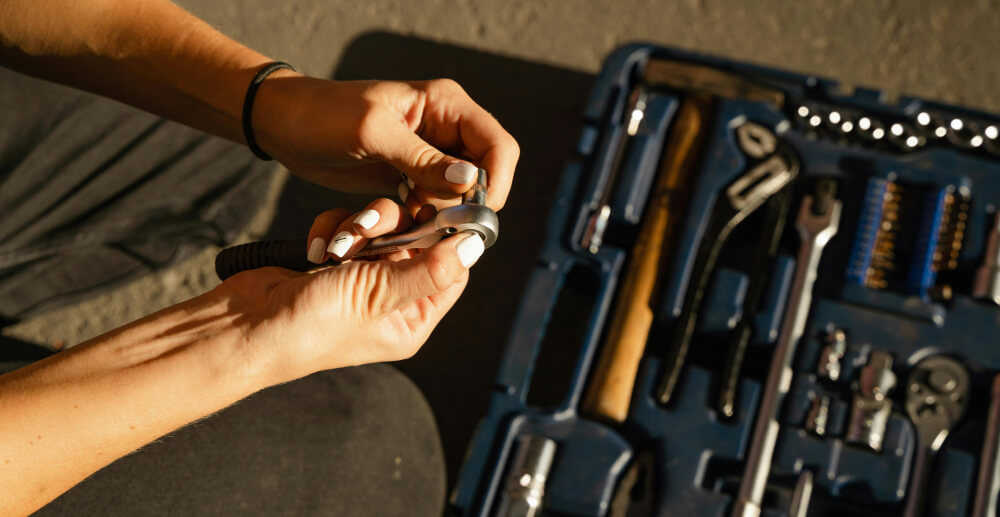Opiate withdrawal is hard. Here are some tips to make withdrawal symptoms easier to manage.
With many drugs and habits, choosing to quit is the hard part. With opiates, choosing to quit is vitally important, but it is only the start of the hard part. However, it’s so worth it. Once I kicked the habit, my life was freed in a wild and wonderful way. It can happen for you, too. So how can you make your detox (or that of a loved one) the easiest experience possible?
Note that throughout this article I use the word “opiates,” which refers to drugs derived from the opium poppy, like opium, morphine, and heroin. But all of the suggestions and advice below applies just as much to “opioid,” which are lab-created narcotics like hydrocodone, Oxycontin, and fentanyl. So don’t get confused by the word!
Get prepared before opiate withdrawal starts:
You’ve made the decision to quit. Now you should get prepped for going through withdrawal symptoms. There are some items you’ll want to stock up on, and some that you should cull. For example, remove your dealer’s number from your phone (don’t just block them—delete the number and your text threads/call records.). Also, get rid of any pills or illicit opioids you may have lying around the house. Here are some other ways to prepare for getting through withdrawal:
- Hydrate, hydrate, hydrate! Stock up on beverages that hydrate you and soothe your stomach. And don’t wait until the withdrawal symptoms begin! Try to start drinking some water now. If you’ve been using, chances are your body is depleted of a lot of good stuff, including H2O. Some good options include:
- water
- electrolyte-enhanced drinks (Powerade, Gatorade, Propel, coconut water)
- peppermint tea
- Pedialyte (look in the aisle with the baby stuff)
- Skip the alcohol and other substances. When you’re detoxing, the last thing you need to do is dehydrate yourself more by drinking alcohol. I understand that when you aren’t feeling well, the idea of blunting your mind and making yourself pass out might sound appealing. Resist that thought. It’s not a good solution.
- Be wary of herbal remedies. Desperate times call for desperate measures, right? Wrong! Before ordering all the herbal supplements and vitamins offered online, look at the ingredients list and search for contraindications with any medications you currently take. Remember that nutritional supplements are not regulated by the FDA, so they might make claims that aren’t backed up by evidence.
- Have over-the-counter remedies on hand. Over-the-counter remedies can provide some relief from withdrawal symptoms.
- Ibuprofen: for muscle aches and pains.
- Imodium or Peptol-Bismol: for stomach upset and diarrhea. Note that Imodium is dangerous if you take more than the recommended dose, so it’s safer to stick to Pepto if you’re not able to keep track of how much you’ve taken.
- Dramamine: for preventing nausea. It’s sold for preventing motion sickness.
- Benadryl: also for preventing nausea. It’s sold as an allergy medicine.
- Check into prescription medications. Suboxone (buprenorphine/naloxone) is a medication approved by the FDA to help you get off other opiates. It must be prescribed by a licensed clinician, so you can’t just pick it up at the corner store. But you can seek a provider who can prescribe it. A clinician may also be able to prescribe comfort medications to deal with withdrawal symptoms, whether you enroll in a Suboxone program or not.
Get comfy for when withdrawal kicks in:
Detoxing from opiates means facing the array of flu-like symptoms that those of us with an opiate addiction previously spent most of our time trying to avoid. These symptoms usually begin with watery eyes, jitteriness, and a runny nose, and carry on to include nausea, vomiting, diarrhea, and intense body cramping. Prep for a detox like you would if you knew you were about to have a bad case of the flu:
- Choose a TV show to binge, or supply yourself with lots of mindless magazines to flip through. Simple distractions can help ease discomfort. This can be a great time to re-watch your comfort movies.
- Arm yourself for temperature shifts. Your body temperature will vary wildly during detox. You’re going to get hot. You’re going to get cold. Have lots of clean blankets, sweaters, and pillows for the times when you’re cold, and get a fan for the times when you’re hot. Have some ice packs and a heating pad on hand.
- Get the good tissues. If you can afford them, invest in good, soft tissues instead of the cheap, rough ones. When you’re wiping your nose and eyes for the millionth time, you’ll really appreciate them!
- Wear comfy clothes that you love. And layer them. This is going to be a rough time, physically and emotionally, so wear your comfiest clothes. The entire time I was detoxing, I wore bunny slippers that I loved—and I really think they helped. Ideally, have several changes of clothes ready in case you sweat through your outfit.
- Take hot (or cold!) showers or baths. Baths and showers will become your best friend during detox. Take them often, and remember to utilize them just when you feel you’re at a breaking point. They can help with the temperature shifts, they feel comforting, and getting clean is good for your physical and mental health.
- Turn to sweets in difficult moments. When you’re trying to get detox, sometimes sugary treats can be surprisingly helpful. If you feel like giving in to a craving, give in to a Hershey’s Kiss instead.
- Take a walk, or sit outside. Being outdoors isn’t a magic fix, but sunshine, fresh air, and a change of scenery can give you a boost.
Get support to make it through opiate withdrawal:
Remember all those people who said they were worried about you and wanted to help you in the past? Now is the time to take them up on their offer. I know it feels uncomfortable to ask for help. But this is too hard to do on your own.
- Speak up about your choices, and ask someone to be there with you. If one person doesn’t have the time to stay with you the whole time, see if friends and family can rotate in on shorter shifts to assist with cleaning, cooking, any other help you might need, and just company.
- Tell your friends about your choice before you start detoxing. This will help ensure that no one hits you up to use when you’re in the midst of an extremely rough moment of physical (or mental) withdrawal. Shield yourself from temptation in moments of weakness.
- If it becomes too much, call someone! Just not your drug dealer. Call a friend, a family member, a helpline, a 12-step sponsor … or drive to an emergency room, if you can afford that option.
Remember, you can do this. How do I know? Because I’ve done it, and so have a lot of my friends and colleagues. We’ve gotten through to the other side, and it is a beautiful place to be.




